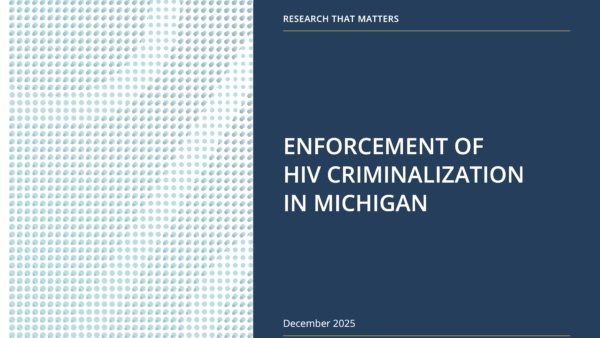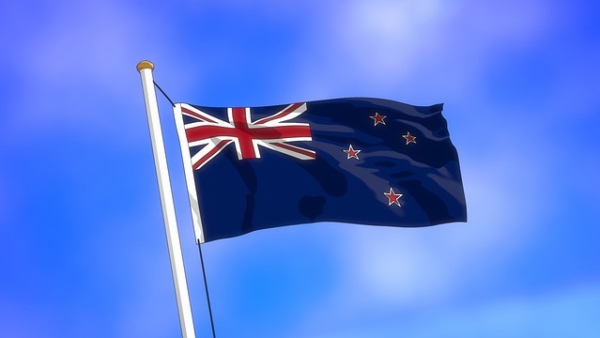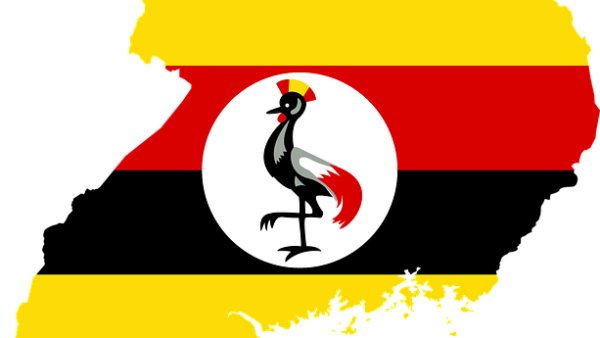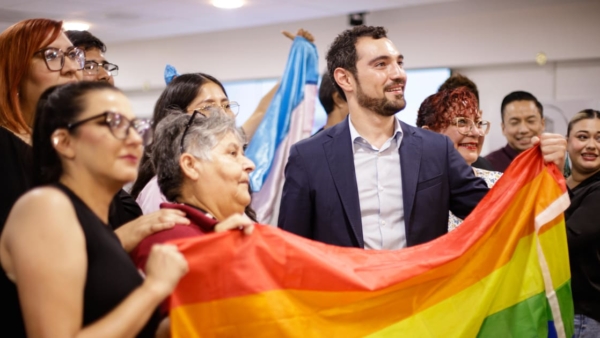- Are you protected from discrimination or unfair treatment because of your HIV status or your TB status? Or does discrimination persist? What has changed, if anything, in the last 5 years?
- As a woman living with HIV, do you still experience violence from partners, stigmatisation, blame, or discrimination from health carers because of your HIV status? Has there been any positive change in laws, practices or the actions of others in the past 5 years?
- Are you better protected from violence and harassment, as a person living with HIV, a person who uses drugs, a transgender person, sex worker, or a man who has sex with men? How, if at all? Does this make it easier for you to use HIV health care services? What problems persist?
- Are you a child or young person affected by HIV? How are you treated, at clinics or at school? Are you able to get health care and social assistance? Has anything changed in the past 5 years to make things easier? What helps and what blocks you from getting the care you need?
- Has there been any positive change in the past 5 years in the way you’re treated by health care workers [or employers]? Are you treated unfairly because of your HIV status, your TB status, your sexual orientation, gender identity or your work? What, if anything, has changed?
- Are cultural norms and practices that put you at risk of HIV being changed, challenged or adapted? How? What works? What more is needed?
- Are you able to access treatment for HIV, AIDS and TB? Is your government doing enough to provide health care? Are intellectual property laws used to increase access to treatment?
- Do you know your rights? Do health care workers and the police know and respect your rights? What’s been done to improve this? How has this helped?
- Is there better legal assistance from the state or NGOs to protect you from TB and HIV-related discrimination, in the past 5 years? Can you bring problems to court? Where else can you bring your complaints?
- Do you provide legal services to people living with HIV and people with TB, women, children, people who use drugs, men who have sex with men, transgender persons, sex workers, prisoners, migrant workers or mobile populations? Have these been strengthened? How has this helped?
- Do you work to develop protective laws, policies and programmes, challenge laws in court and improve the legal situation of people living with HIV, women, children, people who use drugs, men who have sex with men, transgender persons, sex workers, prisoners, migrant workers and mobile populations? Tell us what you’ve done, what has changed and what you’ve learned.
- Are you a researcher or activist whose work builds evidence around the impact of human rights, and rights-based responses to HIV, AIDS and TB? Tell us what you’ve done, what has changed and what you have learned’.
Share your experience with the Second Africa Regional Dialogue planning team.
Make a submission TODAY!
Your submissions will shape the Second Africa Regional Dialogue on HIV, TB and the Law ’s conclusions and recommendations
Selected submissions will be invited to the Regional Dialogue!
Second Africa Regional Dialogue on HIV, TB and the Law
The AIDS and Rights Alliance for Southern Africa (ARASA) and UNDP Regional Service Centre for Africa, under the Africa Regional Grant on HIV: Removing Legal Barriers, will host the second Africa Regional Dialogue on HIV, TB and the Law on 3-4 August 2017 in Johannesburg,South Africa.
The first Africa Regional Dialogue on HIV and the Law called for evidence on the impact of laws,policies and practices on the lives of key populations and on universal access to HIV-related health care services. The second Africa Regional Dialogue will continue to identify key HIV, as well as TB, issues of critical concern. However, it will include a strong focus on understanding what has been done to follow up the recommendations from the first Africa Regional Dialogue, and what has worked to bring about change. The Dialogue would like to hear how laws and policies have changed, if at all and whether this changes lives; how education and training have helped to empower populations and to change attitudes, if at all and whether populations are better able to access support and mechanisms to enforce their rights.
The second Africa Regional Dialogue will bring together 140 government and civil society participants from across Africa to discuss progress on the implementation of the findings and recommendations of the Commission on HIV and the Law in the region, highlight issues and ongoing challenges and make strategic suggestions and recommendations on the way forward.
Objectives:
1. To provide a platform for a range of stakeholders from different sectors, including people living with HIV/TB, key populations, civil society and government, to engage in evidence informed discussions on priority HIV, TB, law and human rights issues of regional and national concern;
2. To reflect on the extent to which the findings and recommendations of the Global Commission on HIV and the Law have been implemented and to evaluate the impact of these initiatives on HIV, law and human rights issues;
3. To identify current challenges and obstacles that continue to impede access to justice and to HIV/TB treatment, care and support services; and
4. To share Model Laws, good practices and lessons learned from work undertaken in the region to date on implementing the findings and recommendations of the Global Commission on HIV and the Law and strengthening the legal and policy environments regarding access to HIV/TB, health and social services.
Outcomes
1. Increased understanding of ongoing, key HIV/TB, law and human rights issues of regional and national concern, the impact of rights-based responses, as well as current and ongoing gaps, challenges and barriers to universal access to HIV-related health care.
2. The prioritisation of regional and national recommendations for action in the short, medium and long term to strengthen HIV/TB, law and human rights in Africa; and
3. A strengthened network of CSOs, academia, activists, government, legislators, members of the judiciary and other stakeholders to provide continued engagement on HIV/TB and the law in Africa
Thematic areas of the Dialogue
• Stigma and discrimination, legal aid responses, legal frameworks and access to justice
• Laws and practices that mitigate or sustain violence and discrimination lived by women
• Laws and practices that facilitate or impede treatment access
• Law and HIV pertaining to children and young people
• Laws and practices that effectively criminalise people living with HIV and key populations at higher risk of HIV and those at risk of TB
How can the law play a central role in the HIV and TB response?
Imagine living in a world where the law fully protects the human rights and dignity of all. In that world women, young people and key populations– sex workers, people who use drugs, gay men and men who have sex with men, transgender people, prisoners and migrants – could safely and freely take steps to protect themselves against HIV infection and to stay healthy if they are living with HIV. They would be able to access services that benefit not only them but also for the benefit of their partners.
The law can protect those vulnerable to and living with HIV and those with TB, against abuse and harassment by the police and against discrimination by healthcare workers and employers. The law can make it possible for people at risk of HIV to access the tools they need to prevent infection. Likewise, the law can make it possible for people living with HIV and those with TB to access life-sustaining treatment.
Knowledge of and respect for the law and how to enforce it can help to create an safe, protective environment for all affected populations. A world in which laws support human rights for all can be a world without HIV and TB!
Why is your submission important?
To have the greatest impact, the Second Africa Regional Dialogue’s planning team is seeking inputs from diverse civil society groups and individuals, including those advocating for human rights, women’s issues, key populations, etc. We are looking to learn from the experiences and knowledge of those most affected, to find out about empowering laws and practices and how they’ve led to change, and disempowering laws and practices that remain. The Dialogue wants to hear what’s been done to create change, what works and why, or why not. By speaking out now, your experience and knowledge will help to shape the Regional Dialogue’s thinking and recommendations, and influence advocacy efforts in the region.
WHAT TO SUBMIT
We want to learn from your experience or knowledge.
The first Africa Regional Dialogue found that in many parts of Africa, as in other parts of the world, the law treats people vulnerable to HIV as criminals. Many African countries criminalise a wide range of behaviors that may expose a person to HIV, making potential criminals of people living with HIV. In some countries, people with TB are detainedunnecessarily and forced to take treatment. In other countries, it is illegal to be a sex worker, a homosexual, a transgender person, a drug user or a migrant. Even in places where these behaviours are not crimes, law enforcement agencies, including police officers, harass or abuse members of these groups. The Global Commission recommended repealing punitive criminal laws and working to reduce stigma, discrimination and violence by law enforcers and others. Are you a member of one these groups who has been cast as a criminal or mistreated by police because of who you are? Do you work with marginalised people whose lives are criminalised? Share your experience of any changes in laws and practices that have impacted on your life or the lives of those you work with, and what still needs to be done.
Similarly, the Africa Regional Dialogue found that women and young people often experience violence, discrimination and inequality, and are unable to access basic rights for survival, increasing their vulnerability to HIV. They recommended law review to promote equal access to their rights, prevent discrimination and violence and access to justice and enforcement to help those who have suffered. Have you lived this experience or worked with people who have? What, if anything, has changed? Share your experiences.
In many places, intellectual property laws create barriers to treatment access, resulting in inflated prices and reduced supplies of life-saving medicines. Are you an academic, researcher or human rights advocate who works to increase access to HIV and TB treatment through intellectual property rights in your country? Share your work and your perspective with us.
HOW TO SUBMIT
1) Countries covered by this call
You are invited to make a submission if your experience has been in a country within the African Union.
Submissions will be reviewed by a selection committee composed of the Africa Regional Grant on HIV: Removing Legal Barriers’ Sub recipients (ARASA, KELIN, SALC and Enda Santé), the Principal recipient (UNDP) and a number of regional key populations groups. A number of authors of submissions will be invited to Johannesburg to participate in the Second Regional dialogue, which will be conducted with simultaneous translation between English, French and Portuguese.
2) Languages
Submissions are welcome in English, French and Portuguese.
3) Confidentiality of Submissions
Submissions can be made at two levels: Public or Confidential. You should clearly state if you would like it to remain confidential. All submissions will be collected by ARASA for an objective review by the Regional Review Panel, based on a range of criteria. ARASA will then submit the relevant submissions to a Regional Selection Committee which will select the submissions to be shared at the Regional Dialogue.
If you would like your submission to be treated as confidential, then please provide two versions of the submission: (1) a confidential version, which will be viewed only by ARASA, (2) a public version with all confidential information removed, which will be submitted to the Regional Selection Committee for review.
Please note that while only some submissions will be selected for the Regional Dialogue, all submissions sent to the Regional Selection Committee are important and will in form and shape the Dialogue’s agenda, conclusions and recommendations.
4) Format of Submissions
All submissions must follow the template for submissions prescribed below.
• Letter format: Submissions should be no more than 3 pages long (maximum 1500 words in the main body of the submission), on A4 size paper. If sent by email, submissions should be in PDF (.pdf), RTF (.rtf) or Word Doc (.doc; docx) format. (Please note if your submission is confidential, only the public version will be shared with the Regional Selection Committee for review).
• Audio/Video format: Submissions in audio or video format should be no more than 10 minutes long. (If your audio or video submission is confidential, please do not mention your name and contact details in the submission. Instead, please include this information in the submission template accompanying your submission.)
• Online Audio/Video submissions: Submissions that cannot be sent via mail or email can be submitted online. They may be uploaded on “youtube.com” or “vimeo.com” using a personal account. Please make sure to secure your video as “private” and send us the link and password to your video
5) Deadline
12 June 2017
Please note that only 1 submission per individual or organisation will be accepted.
Send your entries to:
• Via Email to: submissions@arasa.info
Subject line should be: “Submission Second Africa Regional Dialogue-level of Confidentiality-Key issue(s)”. (e.g. Submission Africa Regional Dialogue-Public- Criminalisation of drug use).
• Via Mail to: ARASA, Unit 203 Saltcircle, 374 Albert Road, Woodstock. Cape Town, South Africa, 7915









